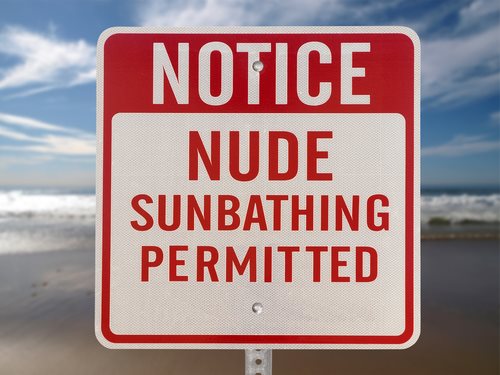
Disclaimer:
Due to the fact that individual state laws are constantly subject to change, individuals are encouraged to consult an attorney prior to engaging in any activity, action, or event in which the expressed legality may come into question. Furthermore, individuals interested in attaining information with regard to individual state legislature are also encouraged to perform independent research in order to substantiate the relevancy and current state(s) of specific legislation.
New Jersey Abortion Laws
Within the state of New Jersey, Abortion is defined as the purposeful termination of a pregnancy through procedural means. Subsequent to the decision of Roe v. Wade, abortion became legal within the United States – however, A legal, partial-birth abortion may occur only in the event that the protection and preservation of the life of the mother carrying a fetus is compromised as a result of a pregnancy; an abortion can take place in order to save the life of the mother only upon accredited and sanctioned medical review
New Jersey Marijuana Laws
Within the state of New Jersey, the possession of Marijuana – or Cannabis products – as well as the acts of growing or distributing marijuana without the expressed permission of the New Jersey State Government is a punishable, criminal offense. The following penalties are associated with Marijuana within the state of New Jersey:
Possession/Under the Influence of Marijuana
1. Amount: 50 grams or less
• Penalty:6 months’ incarceration
• Fines: $1,000
• Classification: varies
2. Amount: More than 50 grams
• Penalty: 18 months’ incarceration
• Fines:$25,000
• Classification: felony
3. Amount: Within 1,000 feet of school
• Penalty: a minimum of 100 hours of community service in addition to any and all associated charges
• Fines: varies
• Classification: varies
Cultivation of Marijuana
4. Amount: Less than 10 plants
• Penalty: 3 -5 years’ incarceration
• Fines: $25,000
• Classification: felony
5. Amount: 10 – 49 plants
• Penalty: 5 – 10 years’ incarceration
• Fines: $150,000
• Classification: felony
6. Amount: 50 or more plants
• Penalty: 10 – 20 years’ incarceration
• Fines: $300,000
• Classification: felony
The Sale of/Intent to Distribute Marijuana
Supplementary Charges include Possession, Sale, and Sale to a minor with regard to Drug Paraphernalia; Marijuana charges may be subject to increase to the proximity to a school zone – sale to a minor may also incur additional fines and incarceration
7. Amount: less than 1 ounce
• Penalty: 18 months’ incarceration
• Fines: $25,000
• Classification: felony
8. Amount: 1 ounce – 5 pounds
• Penalty: 3 – 5 years’ incarceration
• Fines: $25,000
• Classification: felony
9. Amount: 5 – 25 pounds
• Penalty: 5 – 10 years’ incarceration
• Fines: $150,000
• Classification: felony
10. Amount: 25 pounds +
• Penalty: 10 – 20 years’ incarceration
• Fines: $300,000
• Classification: felony
11. Amount: Within 1,000 feet of school property or school bus
• Penalty: variation of ineligibility with regard to parole
• Fines: $150,000
• Classification: felony
12. Amount: Within 500 feet of public property; less than 1 ounce
• Penalty: 3 – 5 years’ incarceration
• Fines: $25,000
• Classification: felony
13. Amount: Within 500 feet of public property; more than 1 ounce
• Penalty: 5 – 10 years’ incarceration
• Fines: $150,000
• Classification: felony
14. Amount: Sale to minors and/or pregnant individuals
• Penalty: years’ penalty doubled in addition to any and all associated charges
• Fines: applicable fines are doubles
• Classification: felony
Medical Marijuana
Within the state of New Jersey, Medical Marijuana is considered to be legal upon prescription by an authorized, accredited medical professional; the appropriate amount allowed is 2 ounces per patient
New Jersey DWI and DUI Laws
Driving while intoxicated (DWI) and driving while under the influence (DUI) charges exist in the event that an individual ingests illegal drugs, alcohol, or controlled-substances, which may impair their respective ability to safely operate a motor vehicle; the following DUI and DWI laws exist within the state of New Jersey:
• Zero tolerance laws exist in the event that an individual below the legal age permissible to consume alcohol is suspected to be unlawfully operating a motor vehicle; within the state of New Jersey, the Zero Tolerance Blood Alcohol Content Level (BAC) cannot exceed .01%
• The BAC limit for individuals operating motor vehicles may not reach .08%; this can constitute a DUI or DWI offense
• In New Jersey, there currently exist no supplementary penalties incurred due to BAC levels exceeding the expressed, legal limit
• Implied consent is a legal instrument that is employed within the realm of a DUI Arrest that entails a verbal or written contract resulting from the willing participation in a regulated activity, such as the operation of a motor vehicle; within New Jersey, law enforcement agents are permitted to act in accordance with implied consent laws
• Upon a DUI or DWI conviction, and individuals is subject to undergo the loss of driving privileges for a period of no less than 90 days’ time; penalties can range upwards of 10
• Upon a DUI or DWI conviction, an individual is subject to undergo the installation of an ignition interlock device
New Jersey Gun Laws
A handgun is a firearm whose smaller size is fashioned to be used upon operation by one hand, which typically fire single round ammunition; within the state of New Jersey, gun laws are as follows:
• The sale, ownership, or possession of firearms with regard to convicted felons, minors, individuals convicted of aggravated offenses, individuals physically impaired with regard to the presumed safe-usage of a firearm, individuals convicted of the sale(s) of an illegal substance, and individuals with a history of convictions with regard to narcotics is illegal in the state of New Jersey; individuals carrying illegal weapons on their person during the time of a crime, aggravated assault can be attributed to any coinciding criminal convictions imposed
• A 30-day waiting period for the purchase of a handgun currently exists within the state of New Jersey; a 45-day waiting period exists for all non-residents
• Current listing or report of forearms considered to be illegal in the state of New Jersey: Sawed-off shotguns, silenced weaponry, imitation – or mock – firearm (upon criminal intent), altered firearms, armor-piercing ammunition, stun guns, machine guns, and unlicensed assault firearms
New Jersey Adoption Laws
In the state of New Jersey, an individual who has been deemed as a law-abiding citizen 18 years or older who is of sound mind and moral character is permitted to adopt a child; individuals whom are wed must agree to an adoption in a joint fashion:
• Any individual may be adopted; children above the age(s) of 10 must express consent with regard to a potential adoption
• Within the state of New Jersey, and individual must maintain residence for a period of no less than 6 months
• Within the state of New Jersey, the Department of Human Services mandates all adoptions
New Jersey Employment and Labor Laws
• Within the state of New Jersey, the minimum wage is $7.15 – $7.25awarded per hour of labor
• Within the state of New Jersey, an individual’s employ cannot be terminated in the event that they report a violation or hazard taking place with regard to their respective employment – or place of employment
New Jersey Divorce Laws
Within the state of New Jersey, a divorce is defined as the termination of a marriage, which can occur upon a decision set forth by one or both partners involved in the marriage:
• A divorce must be filed by an individual resident of New Jersey
• ‘No Fault’ divorce does exist on the grounds of a separation must take place for 18 months
• Additional grounds for divorce can include cruelty, adultery, criminal conviction, addiction to drugs or alcohol, desertion, deviant sexual behavior, and insanity
New Jersey Death Penalty Laws
Within the state of New Jersey, Capital Punishment – or the Death Penalty – is legal; however, additional stipulations exist with regard to this procedure:
• In the event of mental instability or incapacity, capital punishment is disallowed
• 18 years of age is considered to be the minimum age permissible for a capital punishment sentence
• Within the state of New Jersey, homicide is considered to be the only crimes punishable by death
• The accepted means of capital punishment is the administration of lethal injection subsequent to sedation
New Jersey Gambling Laws
Within the state of New Jersey, Gambling is defined as the purposeful risking of any or all assets, property or monies with the intention of gain; a primary stipulation exists that expressed that the individual retains no control of peripheral outcome(s) with regard to any wagers set forth:
• Licensed Horse racing wagering is legal
• Only licensed Dog racing in the scope of agriculturally-based events is legal
• Any and all unsanctioned structures and facilities intended to house gambling activity are deemed as illegal in the state of New Jersey; legal gambling may only take place in state-mandated facilities
New Jersey Child Laws
Within the state of New Jersey, the following stipulations with regard to child laws and child custody are recognized:
• Joint custody is permitted
• The rights implied within grandparental visitation are recognized
• The wishes of any or all children involves are taken into consideration with regard to a custody decision

























































